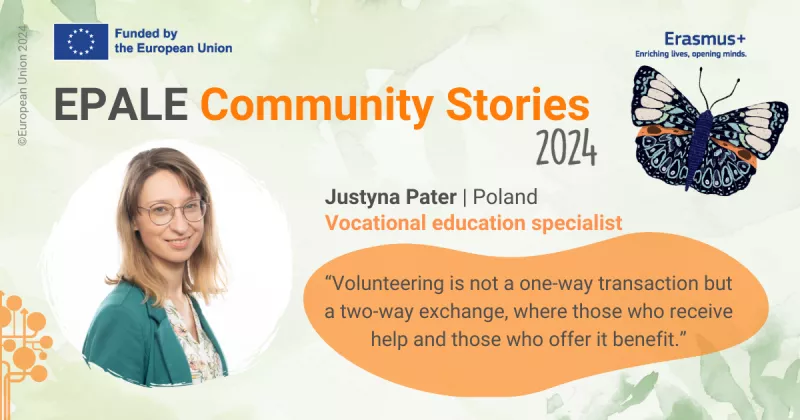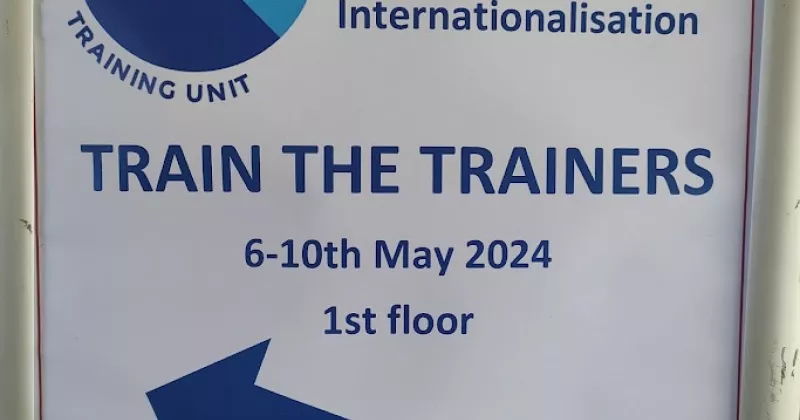“aSsessing Competences fOr fUTure” – initial results from the EU SCOUT project
Original Language: german
Goran Jordanoski is a Research Associate at the Deutsches Institut für Erwachsenenbildung - Leibniz-Zentrum für Lebenslanges Lernen e.V. (DIE). He is responsible for scientific analysis and coordination of the SCOUT-Project.

Integrating immigrants – a challenge as well as an opportunity for EU countries

In recent years, the number of refugees in the world has been higher than at any time since the Second World War. Since 2015, European Union countries have had to contend with an increasing number of asylum seekers and migrants. Integrating these people into society has become a key point on Europe’s political agenda. Above all, their integration into the labour market is seen as of significant, if not decisive importance. Time and again both politicians and the media make the claim: Integrating immigrants into society and the labour market presents a challenge, but also an opportunity for Germany and other EU countries.
The key challenge of assessing competences
The new immigrants bring various experiences and competences, which are often difficult to compare with the competence profiles of job descriptions in EU countries. Furthermore, only very few are in a position to present formal qualifications, certificates or other similar documents. Assessing already acquired competences and work experience, as well as the recognition of qualifications obtained in the country of origin, thus represents a major challenge. For this reason, successful integration into the labour market requires offering tailored advice to particular groups. This advice should be specifically adapted to new immigrants and enable competence assessment that is appropriate to the target group.
“aSsessing Competences fOr fUTure” – improving competence assessment for new immigrants
The Erasmus+-funded project SCOUT (“aSsessing Competences fOr fUTure”) is primarily aimed at advisors from EU partner countries who work with new immigrants and bring those immigrants’ potential and interest in developing competences to light. Thus, SCOUT aims to improve the work of advisors and in particular their role in assessing the competences of immigrants. Two products have been created for this purpose:
Firstly, competence assessment tools that are already available in individual partner countries have been categorised and put together in a toolkit for advisors. The aim is to aid the work of advisors in the area of competence assessment. Secondly, as a core component of the SCOUT tool kit, a version of the ProfilPASS is being created that is adapted to the relevant target group in simple language. The ProfilPASS is a tool for the assessment of non-formally and informally acquired competences and has been in existence in Germany since 2006 and throughout Europe since 2014. In an earlier project it became clear that the ProfilPASS has great potential in making the “hidden” competences of new immigrants visible, but that it requires some adaptation. The assumption is that via analysis of their existing competences with the ProfilPASS and detailed advice concerning education and training, new immigrants not only find suitable (further) education and training offers, but also improved access to the labour market.
Integration and competence assessment – what is the current state of affairs?
One of the SCOUT project’s first steps was a fundamental survey of competence assessment in the various partner countries, based on research, expert interviews and focus groups. According to the findings, there are already numerous governmental and non-governmental initiatives and activities to implement guidance and integration measures as well as occupational orientation and education measures for new immigrants. There are also various approaches concerning the assessment and recognition of competences. In Germany, the Anerkennungsportal der Bundesregierung [Federal Government Recognition Portal] and the ValiKom [Validation of Competences] project, among others, have been identified as examples of “good practice”. One challenge facing all countries lies in providing new immigrants with easily comprehensible and accessible information and support regarding the assessment and validation of already acquired competences. The language barrier represents a significant problem.
The SCOUT toolkit – initial ideas and challenges concerning development
The results of the research and interviews illustrate the fundamental contents and challenges that will drive the development of the SCOUT toolkit. The use of simple language during competence assessment is recommended as a way of dealing with the language barrier. The centrepiece of the toolkit, the ProfilPASS, will be adapted for this purpose and translated into simple language. Getting to grips with the ProfilPASS, which currently consists primarily of text, will also be made easier thanks to a revamped layout with graphic elements, drawings and visualisations. This modified ProfilPASS will be an effective support when it comes to identifying the competences of new immigrants. Alongside the modified ProfilPASS, the toolkit will encompass 20 different tools from the project countries which can be used at various stages during the advisory process. Some tools are available in several languages, for example the EU Skills Profile Tools for Third Country Nationals from the European Commission. At the same time, it is important to focus on the language competences of new immigrants. The ability to speak several languages is a significant advantage on the labour market and should be exploited. Furthermore, competence assessment and other work-related activities such as further education and training measures, career coaching, etc., should ideally be integrated with one another. The open access toolkit offers advisors low-threshold and straightforward access to competence assessment tools. Those seeking advice can also, to a certain degree, work independently with some of the tools and carry out an initial analysis of their own competences. However, there is the risk of either over- or underestimating one’s own skills and competences. Obtaining advice is therefore important in order to ensure the most realistic self-assessment possible.
Outlook – where is this path leading?
After the current situation in the various partner countries was surveyed and the elements of the toolkit for competence assessment carefully selected, the specific development work on the ProfilPASS in simple language is now taking place. Initial ideas are also taking shape concerning the form in which the SCOUT toolkit should be made available and how to make it user-friendly. Alongside the toolkit with its various advisory tools, a curriculum and a manual for advisors will also be produced in the coming months.
Project framework
On 1 October 2017 the two-year EU-project “aSsessing Competences fOr fUTure (SCOUT)” began as part of the Erasmus+ programme (project reference: 2017-1-DE02-KA204-004194). SCOUT is led by the the Deutsches Institut für Erwachsenenbildung - Leibniz-Zentrum für Lebenslanges Lernen (DIE) [German Institute for Adult Education - Leibniz Centre for Lifelong Learning] in the role of coordinator, together with partner organisations from Greece, Austria, Sweden, Slovenia and Spain.





